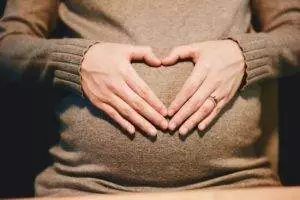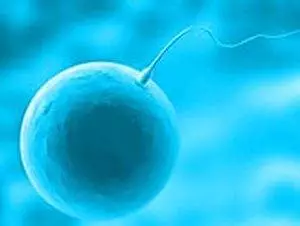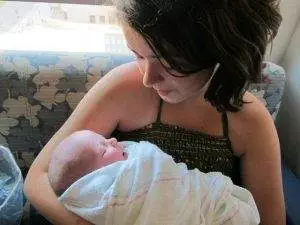-
 Art of Wellness Acupuncture & Traditional Chinese Medicine (TCM)11704 Wilshire Blvd, Suite 295, Los Angeles, CA, 90025
Art of Wellness Acupuncture & Traditional Chinese Medicine (TCM)11704 Wilshire Blvd, Suite 295, Los Angeles, CA, 90025
myartofwellness@gmail.com310-451-5522 Office Hours
MonClosedTue7:30 am --4 pmWed7:30 am --4 pmThu7:30 am -- 4 pmFri7:30 am -- 4 pmSat7:30 am -- 4 pmSunClosedOur office opens from Tuesdays to Saturdays 7:30 am to 4 pm, will be closed on Memorial day, Independent day, Labor day, Thanksgiving day, Christmas and New year.
-
Recent Posts
- How to Treat Metabolic Syndrome With Acupuncture and TCM
- How to Treat Syncope With Acupuncture and TCM
- How to Treat Thoracic Outlet Syndrome With Acupuncture and TCM
- How to Treat Dupuytren’s Contracture With Acupuncture and TCM
- How to Treat Nutcracker Syndrome With Acupuncture and TCM
- How to Treat Rosacea With Acupuncture and TCM
- How to Treat Perioral Dermatitis With Acupuncture and TCM
- Lymphatic Drainage With Acupuncture and TCM
- How to Treat Turf Toe With Acupuncture
- How to Treat Nerve Pain With Acupuncture and TCM
- How to Treat Watery Eyes With Acupuncture and TCM
- How to Treat Ovarian Cysts With Acupuncture and TCM
- How to Treat Dystonia With Acupuncture and TCM
- Can Acupuncture Help Bad Breath?
- How to Treat Atopy with Acupuncture and TCM
- Plantar Fasciosis Treatment With Acupuncture and TCM
- Sign up to receive news and updates and get my free report:“The Top 10 Reasons to Try Acupuncture”

September 2025 M T W T F S S 1 2 3 4 5 6 7 8 9 10 11 12 13 14 15 16 17 18 19 20 21 22 23 24 25 26 27 28 29 30
Women’s Health
How to Treat Infertility in Women with Acupuncture and TCM
by Xiaomei Cai, L.Ac., Ph.D.

About one in ten women who are ready to conceive find that they have trouble doing so naturally. Infertility in women is thus a very common condition, one that has a profound impact on women and their partners. Acupuncture and TCM is proven to be extremely beneficial to women who are trying to get pregnant, both as primary and complementary care.
Dr. Cai at Art of Wellness has thirty years of experience, both in China and in the U.S., as a specialist in women’s healthcare and infertility in women. She has studied and worked with some of the most influential doctors in the field in both countries, and has helped hundreds of women achieve healthy pregnancies.
Traditional Chinese Medicine (TCM) is a system of health care that goes back thousands of years. Women’s health care has been a key part of this system all of that time. Conditions such as irregular or painful menstrual periods, ovarian cysts, endometriosis, and infertility have all been recognized, studied and effectively addressed by TCM for many centuries. Women who are having difficulty solving these problems with their medical doctor may find not only relief from pain, but a true solution that addresses their whole being–body, mind, and spirit.
Diagnosis of Infertility in Women in 8 Exact Steps
Any time a woman of childbearing age has a partner with healthy sperm, and they’ve been trying for two years without conceiving, we define this as infertility. But age makes a difference. If the woman is over 35, and it has been one year, we will diagnose infertility.
There can be many factors or causes involved in the infertility diagnosis, some chemical, some mechanical:

- Hormonal imbalances can cause irregular cycles, which means shorter or longer than the usual number of days (28-30), sometimes with no sign of ovulation, sometimes with high FSH (follicle stimulating hormone).
- Fallopian tubes may not be open due to scarring or previous PID (pelvic inflammatory disease).
- Endometriosis or an STD (sexually transmitted disease) can also cause blockage.
- Sometimes the uterus can be congenitally misshapen, or inside there may be fibroids, polyps, lining issues, twisting, chronic inflammation, etc.
- Occasionally, antibodies can get into the cervix and block the sperm.
- In rare cases, the uterus may be tilted to the front or back, positioning the cervix so that it is either very high or very low or over to the side, making it difficult to receive sperm. These patients must rely on IUI (intrauterine insemination) to get the sperm where they need to go.
- Autoimmune issues can cause a woman’s immune system to produce antibodies that reject the sperm.
- Blood incompatibility between the parents–for example, if the woman is RH (Rhesus factor) negative with a RH positive man–can happen sometimes after a first pregnancy or miscarriage. This is more common in older women.
Top 5 Different Causes of Infertility in Women

According to TCM, there are several differentiations of an infertility diagnosis. TCM practitioners differentiate between various causes and treatment plans for dysmenorrhea based on when the pain occurs (before the onset/during the period), the quality and location of the pain, associated symptoms like bloating, the appearance and volume of flow and accompanying emotions and sensations such as dizziness or fatigue. Some types are due to an excess, either of cold, or of stagnation of qi or blood. Others are due to a deficiency of qi or blood.
- Kidney Deficiency – If a woman’s menarche occurred later than usual (typical is age 12-14), that might indicate some weakness of the reproductive system. To perform its normal functions, the uterus needs a rich and plentiful blood supply. Constriction of the capillaries that supply blood to the uterus occurs when there is too much cold in this area. Certain lifestyle behaviors can cause diminishment of ovarian health, sometimes leading to premature ovarian failure. Naturally over the age of 35, many women can begin to show signs of kidney deficiency.
- Blood deficiency – Poor digestion or a diet with insufficient nutrition can create a situation in which blood is not providing enough nourishment to support the ovaries and uterus.
- Liver qi stagnation – Long periods of emotional stress and irritability can cause qi/blood flow to become stagnated, interrupting the flow of energy through the system.This can cause irregular periods or a lack of ovulation. Blockage in the flow of qi restricts the supply of necessary energy to developing eggs, fertilized egg or embryo.
- Dampness – Insufficient nutrition from diet, poor digestion, and/or being overweight can cause dampness and water retention to accumulate in the reproductive system. This condition can lead to pelvic inflammation, PCOS (polycystic ovarian syndrome), painful periods and blockage of qi.
- Blood stasis – Can be caused by physical trauma to the uterus due to surgery or injury. It can also stem from a Cold uterus condition (too much cold exposure or icy-cold drinks/raw food during periods). Lack of proper blood circulation relates to painful conditions such as the formation of clots, ovarian cysts, tumors or fibroids that create a physical blockage. Blood stasis can also lead to thin lining or even absence of periods.
Both kidney and blood deficiency can cause irregular periods, anovulation, short cycles, light flow, poor uterine lining, and the type of pain during periods that is helped by massage or heat.
Blood stasis and dampness can cause endometriosis, severe menstrual pain (not helped by heat or massage), ovarian cysts, strong hormone suppression, and lack of ovulation.
Top 5 Infertility Treatments with TCM

TCM treatments for the different kinds of infertility in women include:
- Acupuncture: In TCM, the objective is always to use the stimulation of specific points to clear blockages in the systems in order to keep qi and blood moving fluidly, clearing the way for harmonious cooperation between the organs involved in the system. Weak areas are tonified, or strengthened, while areas bloated with excess are relieved of pressure.
- Cupping: This is a method of acupressure that uses glass cups to create a vacuum effect in specific points. It is used to dispel stagnation and excess heat and stimulate circulation of blood and qi.
- Moxibustion: burning a stick made of mugwort near a specific acupuncture point is something patients can do at home to help a cold uterus condition.
- Herbal supplements: Herbs can really help to support the woman’s cycle and even re-activate ovaries until average menopause at age 45-55.
- Nutrition and Lifestyle Guidance: An acupuncturist will recommend an appropriate diet for nourishing the whole body as well as correcting any Yin/Yang imbalances. In addition, certain behaviors related to bathing, exercise and even clothing choices may be affecting a cold uterus condition and need attention and adjustment.
TCM Doctors Offer Solutions for Infertility in Women

Advances in technology in recent years have been a boon to couples who are struggling, especially for women who have physical barriers to achieving conception and carrying a pregnancy, such as blocked tubes. IVF (in vitro fertilization) allows us to move past these roadblocks with surgery.
However, a woman still needs good hormone levels for better outcomes for conception, pregnancy and birth. For those with elevated FSH or low AMH (anti-müllerian hormone) who require IVF, adjunctive acupuncture and TCM will help to address these problems and increase the chances of success. One German study showed that success with IVF cycle was 15% higher than without acupuncture.
Each woman’s situation is unique and personal to her. Scientific study and medical research are only in recent decades beginning to acknowledge the connections between a person’s thoughts and emotions and her physical well-being, but women intuitively know that their less visible, harder-to-describe feelings are inextricably linked to their reproductive processes. Finding an acupuncturist who really listens and understands this might be the key to reaching a new level of quality of life, as well as realizing a dream of having a child.
For additional resources, visit our Fertility FAQs page. For more examples, visit our success stories of women who found solutions from Dr. Cai’s treatment.
Acupuncture can also effectively treat Oligospermia, low sperm count, and male infertility. If your family suffers from infertility and you are looking for infertility clinics, visit Art of Wellness at Santa Monica, Los Angeles, one of top 19 picks among 825 clinics in the great LA area.
Menopause
Welcome Into Second Spring
By Xiaomei Cai, L.Ac., Ph.D.
Mixed Feelings about Menopause?
When it comes to menopause, how is a woman supposed to feel?
Relieved? Finally! We no longer have to deal with periods, no more worrying about the possibility of pregnancy and the many complications of childbearing. But, there is also fear of the unknown. The ovaries are shutting down, our hormone levels are decreasing, which means everything feels different. And for some, there are unpleasant sensations–hot flashes and body aches–and uncomfortable changes–like looser skin and lower metabolism. But, there is hope in every new phase! We can choose to welcome menopause as the “Second Spring” of our lives. If we make positive choices to take care of our health, we can feel more vibrant, and wiser, than ever.
The Ages of Woman
Menopause is a transitional time, similar to adolescence. If we look back to those years when we first got our periods, we can see the roots of our womanhood. Our youth is when we are “in bloom.” Then, during our childbearing years, our bodies are in a constant state of readiness to bear “fruit,” and to feed others. We grow up, then we spend many years focusing our energies outward–helping others grow, too: our partners, our children, our careers. Now, in the Second Spring of life, we get to turn our attention back inward, to choose our own projects and to reserve our energy for those things we want to nurture.
Early in life, girls and women may often feel limited from all sorts of pursuits — physically, athletically, in education and career goals — because of our periods, our hormone shifts, and our ability to get pregnant. We face issues, because of the way our bodies work, that men never have to face. And, in most cultures, still, it is the woman who bears the primary responsibility for taking care of the family. The Second Spring offers an opportunity to make up for some of those times we felt held back, to live for ourselves without feeling so obligated to others. We have a chance to “rebloom,” to enjoy new freedoms and follow our dearly held dreams to fruition.
Go Back to the Root
Physically, a woman goes through many significant changes over the years, and different factors come into play. If a woman’s body is out of balance — due to trauma, stress, illness, injury, diet, environment, etc.–she may experience difficulties with her female organ function. Painful periods, irregular periods, cysts, fibroids and endometriosis are all common conditions — but they do not happen without some imbalances causing them. A lifetime of choices, experiences, pains and pleasures add up to create the health status we live with now, in this moment.
Women’s health issues can be treated, at any stage of life, with acupuncture and herbs, as well as the right kind of food and lifestyle choices. If a woman finds and partners with a good healthcare practitioner, and practices a lifestyle that helps her achieve optimal health, she does not have to suffer through years of PMS, nor through years of menopausal difficulties, either. Unfortunately, many women do not know there is an alternative to using pain relief medicines, oral contraceptives and hormone replacement to manage symptoms. These drugs do not offer a real solution to the problems; they mask them. As women, we are often expected to simply accept these problems and learn to “cope.” But why settle for that, when we have the means to correct them?
TCM Offers Comprehensive Womens’ Health Care
TCM looks at female care as “ovarian care.” Beside paying attention to our liver, heart, lungs, and kidneys, we also focus on menstrual and premenstrual care, pregnancy and postpartum care, and menopause care. These are unique to women. The ovaries are the major players when it comes to female hormones, cycles, and reproductive health. Girls, young women and older women can all benefit from regular treatment, herbal supplementation, and lifestyle improvements to encourage healthy and smooth functioning of these processes. If, as a younger woman, you are able to manage your hormones, then, when menopause comes, it hopefully will not be too much of a problem. If you are already experiencing menopause symptoms, it is not too late to get yin and yang balance restored, so that you can enjoy this phase of life and many healthy years to come!
According to TCM, most menopausal disorders fall under kidney and/or liver Yin deficiency. This manifests in hot flashes, waking often at night around 3:00-4:00 a.m., dreamy light sleep, irritability, memory loss, dry eyes, mood swings, and irregular periods. A smaller percentage of symptoms fall under kidney Yang deficiency; low back soreness, incontinence, water retention, fatigue, indigestion, and weight gain. We use very specific acupuncture points to help with each of these different problems, and are able to treat each woman’s unique combination of issues. We also have our unique techniques (needling and massage) and herbal products to help skin stay firm and smooth.
Self-Care for Menopause
Acupuncture and herbal modality have been taking care of these women’s health issues for thousands of years. Besides seeking these professional services, there are many things you can do at home to facilitate a smooth transition:
- For Yin deficiency, stick with cooling and juicy foods like fresh veggies, fruit, yams, sweet rice, mung beans, lotus roots or seeds. Stay away from alcohol, coffee, and spicy foods which increase internal fire or heat. Snacking on Goji berries is recommended, drinking chrysanthemum tea, chamomile tea or Art of Wellness’s own Night Tea can help you rest and sleep better.
- For Yang deficiency, drink warm lemon water upon rising, eat more cooked and warm food, nuts, especially walnuts and pecans, stay away from dairy, icy foods and drinks and greasy, heavy meals. 20-30 minute hot foot spa before bedtime is recommended. Rub the low back along the midline of the spine and on both sides until very warm.
- For saggy or loose skin, facial rejuvenation acupuncture needling will help stimulate collagen production and improve facial circulation.
- Speed-walk 30-45 minutes per day.
- Rub hands to warm them, then rub the soles of each foot 100 times. Practice daily.
- Meditate 20 minutes daily, in the morning or ideally, at bedtime.
- Suggested Menopause Meditation: focus on the lower abdominal area (Dan Tan), until it feels warm. Then, move the warm sensation into your kidney area.
Acupuncture and Cervical Health
Women’s health is a big part of the healthcare industry. And acupuncture can be very beneficial in caring for the overall health of women. Acupuncture has been especially effective in helping with things like infertility, turning breech babies, inducing labor and clearing up infections. The cervix is just one small part of the uterus. Specifically it is the lower part of the uterus that opens to allow passage between the uterus and the vagina. The cervix widens during childbirth to allow the baby to pass, it also allows the passage of menstrual fluids from the uterus out of the body and it is vital for sperm to pass through the cervix to reach the uterus when trying to procreate.

The cervix is very vulnerable to several health conditions, such as chronic inflammation, polyps, dysplasia and even cancer. Cervical conditions rarely present symptoms in the early stages, which makes it extremely important for women to get regular pap smears. If an abnormality is detected, there are several ways to address it, depending on the severity. In the early stages of any of the aforementioned conditions, acupuncture can be a positive addition to Western medical treatments. Acupuncture is very good at decreasing inflammation and helping to dissolve polyps and tumors. Acupuncture can also balance hormones, which allows the body to correct any imbalances.
One of the most studied areas of acupuncture is in treating fertility issues. When invitro fertilization by itself does not get the job done, adding acupuncture may be the last piece of the puzzle. Acupuncture does much more than just balance the hormones. When a woman is trying to get pregnant and struggling with it due to fertility issues, the stress levels are extremely high. And high stress levels have been proven to disrupt the body’s ability to conceive. One of the things that acupuncture is really successful at is decreasing stress levels. This can make it easier for the fertility treatments to work. Acupuncture has also been shown to increase blood flow to areas of the body, including the uterus. This can help to make a very hospitable place for a baby to grow.
Acupuncture and traditional Chinese medicine are also widely used for treating infections and sexually transmitted diseases. In traditional Chinese medicine, most infections have some sort of heat or discharge associated with them. This medicine uses principles, herbs and acupressure points that have specific properties that can drain heat and expel toxins from the body. This can lead to an overall improvement in both uterine and cervical health.
Another area where acupuncture can help with cervical health is at the time of birth. About four percent of babies are presented in the breech position prior to birth. An accessory modality known as moxibustion, has proven time and time again, that it can actually turn the baby to the proper birthing position. Moxibustion involves the burning of an herb, dried mugwort, very near the skin on a specific acupressure point that is located on the outer edge of the pinky toe. By performing moxibustion several times a day, the baby and the body somehow know that there needs to be a repositioning and the baby tends to turn during the night.
When it comes to women’s health, acupuncture is an amazing resource. Contact us to schedule your appointment today.
Seven Ways Acupuncture Can Help Mothers
 One of the best gifts you can give your mother this Mother’s Day is the gift of acupuncture. Acupuncture can help with an abundance of health problems and get you feeling one hundred percent again. Mom’s make the world work, it’s a known fact. So this holiday season you should give your mother the gift of acupuncture, here are seven reasons why.
One of the best gifts you can give your mother this Mother’s Day is the gift of acupuncture. Acupuncture can help with an abundance of health problems and get you feeling one hundred percent again. Mom’s make the world work, it’s a known fact. So this holiday season you should give your mother the gift of acupuncture, here are seven reasons why.